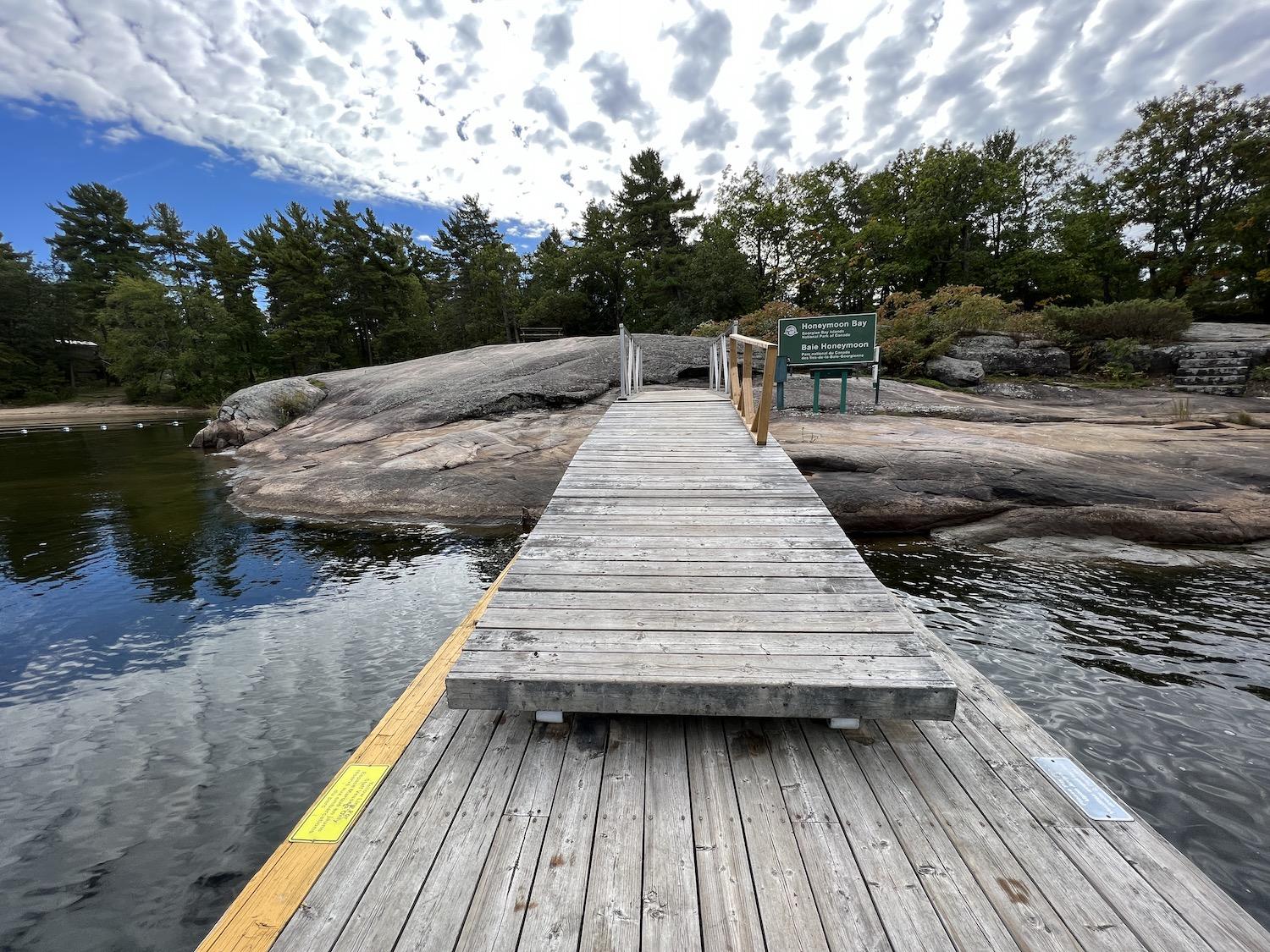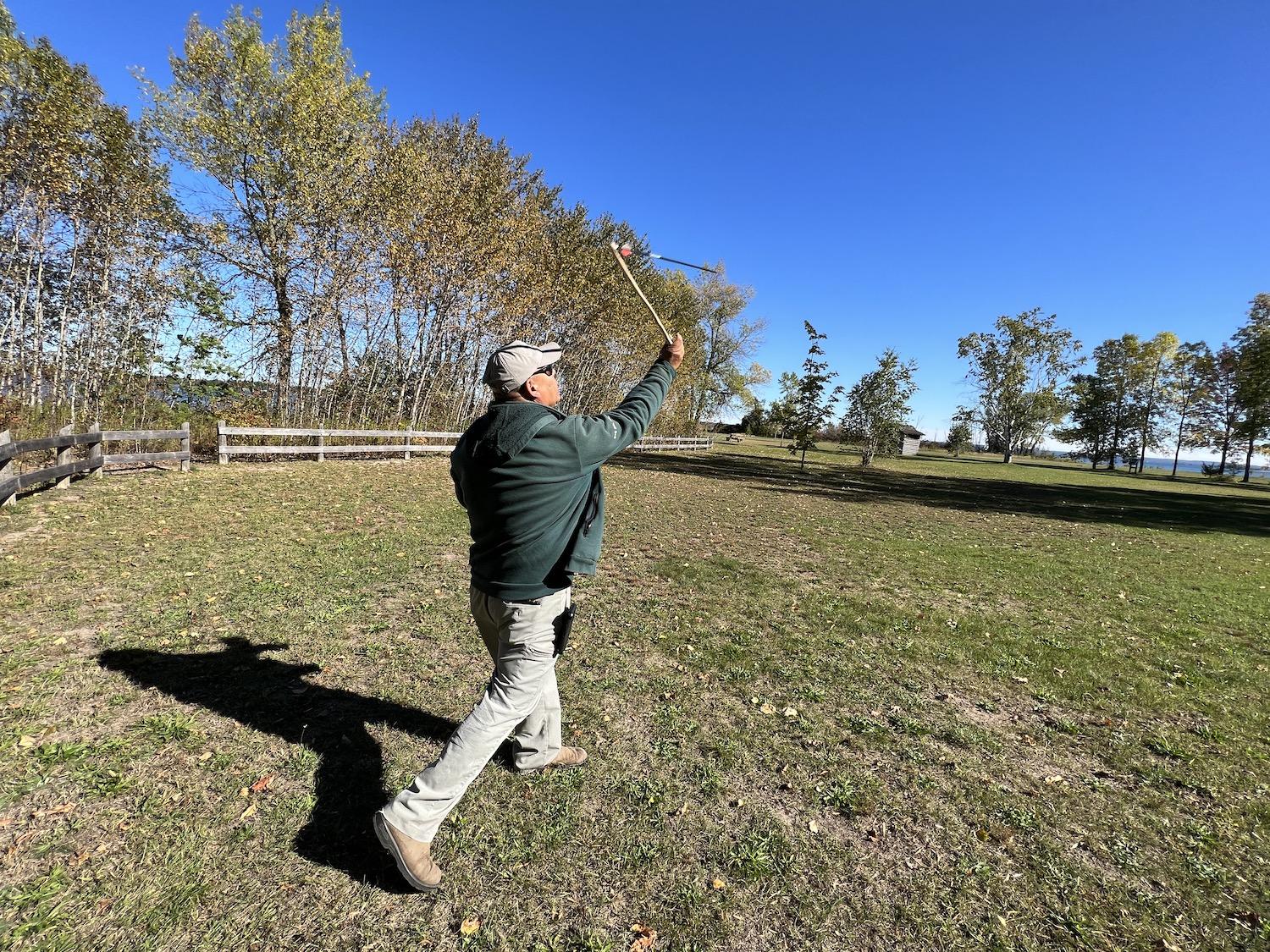
Georgian Bay Islands is a boat-based national park and Parks Canada offers a seasonal shuttle/Jennifer Bain
The management plan for Georgian Bay Islands National Park, including Beausoleil Island National Historic Site, has been released.
It replaces the 2010 plan and outlines four key strategies for the island-based Ontario park:
• Managing conservation and climate change adaptation within a broader fragmented ecosystem.
• Enabling access and enhancing a diverse and enjoyable visitor experience.
• Strengthening formal Indigenous relations — sharing heritage and culture.
• Building awareness and community support — the invaluable treasures of the park are known.

Shawn Corbiere is the park's Indigenous liaison officer/Jennifer Bain
The plan was based on input from Indigenous partners, the park’s Cultural Advisory Circle, regional residents, partners, stakeholders and visitors. Through this plan, Parks Canada says it will protect important examples of natural and cultural heritage in Canada, engage and collaborate with Indigenous peoples, and provide an opportunity for Canadians to experience and discover the environment in new and innovative ways.
Established in 1929, Georgian Bay Islands protects 63 islands and is Canada’s smallest national park with a total area of 14 square kilometres (5.4 square miles). It straddles two natural biospheres — Great Lakes Precambrian Shield and St. Lawrence Lowlands.
Beausoleil Island National Historic Site is the largest island in the park. Archaeological finds demonstrate human activity and settlements on the island dating back over 10,000 years, from the late Paleo-Indian period to the present day.
Thirty-three species of reptiles and amphibians have been found in the park, which is the most in any national park in Canada. This includes species at risk such as the Eastern Massasauga Rattlesnake, Five-Lined Skink and Map Turtle.
The park is in the world’s largest freshwater archipelago and is only accessible by boat. It welcomes about 40,000 visitors annually and serves as a gateway to the national park system for many urban Canadians in southern Ontario.


